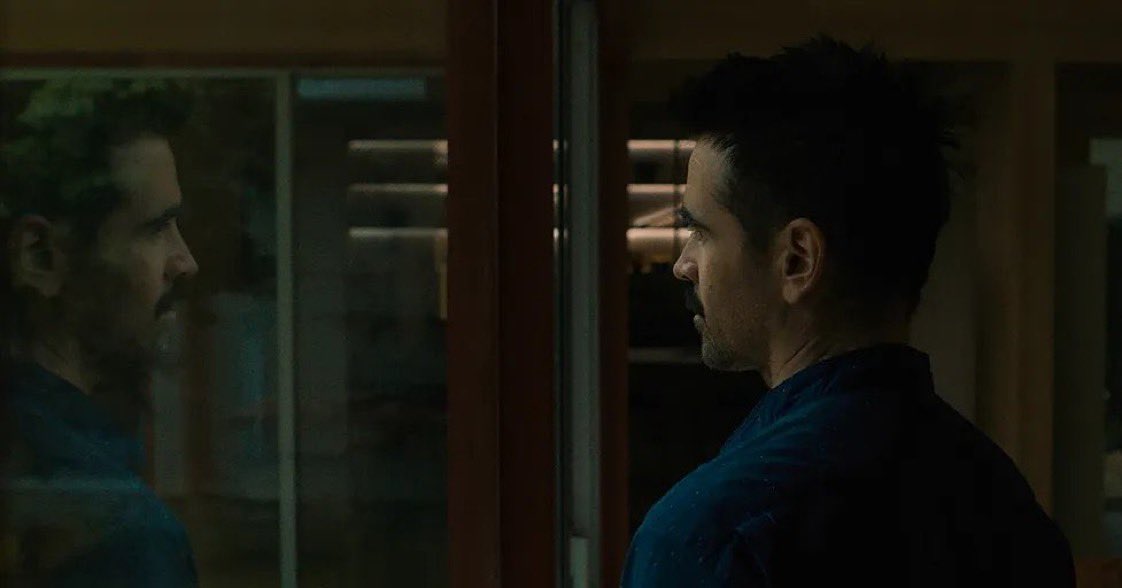The premise of After Yang might require a mild digestif. A work of speculative science fiction from the video-essayist-turned-director kogonada, it concerns the inner workings of an unconventional family: adoptive father Jake (played by Colin Farrel), the proprietor of an artisanal tea shop; his wife Kyra (Jodie Turner-Smith), busy and detached; their daughter Mika (Malea Emma Tjandrawidjaja), an adopted child from China; and Yang, the android they purchased to be her ersatz older brother. Near the film’s start Yang breaks down and, with Mika distraught, Jake must find a way to get him back online. On his travels he discovers that Yang’s hardware has been custom fitted to record and save a few seconds of video each day, a moment that the A.I. finds most valuable; or, in other words, to find evidence of an inner emotional life. Phew.
It is the second feature to be released by kogonada, a South Korean-born, American-based filmmaker who took to making features with consummate ease with his 2017 debut Columbus. A love story in hushed tones, it used the clean lines of that city’s famed architecture as a profound backdrop to the complicities of his characters’ desires—an allegory as neat as Saarinen’s spire. After Yang swings for a similar calm catharsis but fails to make contact. Though ambitious in reach, its tone is one-note, stilted, and saccharine sweet, its ideas as disjointed as they are ultimately unsatisfying.
kogonada imagines two science-fiction threads for a film where one might have sufficed. On one side his film proposes an intriguing angle on the immigrant story. Mika is being brought up American––at least this future version of American––and Yang’s function is to not only look after her but to educate her on her native cultural heritage. (There is potential here for conflict––something the film is in dire need of––but it’s left unexplored.) On the other side After Yang is about Jake, a man whose marriage requires as much rebooting as his robot son. That Yang’s memory box, which kogonada visualizes as a lovely constellation of searchable golden data, provides Jake with a literal new perspective on life––leading him to question his own capacity for feelings––is at best an obvious metaphor, at worst a trite one.
The production offers respite. Farrell gets to have his Ex Machina moment in a brilliantly conceived opening dance contest. After Yang‘s neo-noir future world of tea shops, self-driving cars, back-alley repair stores, and neon-lit noodle houses suggests a quiet homage to Blade Runner. Cinematographer Benjamin Loeb (Pieces of a Woman, Mandy) locates moments of beauty in the strangely muggy color palette. Yet its world never quite feels lived-in, and much of the screenplay’s science-fiction lexicon (technosapians?) lands with a resounding thud. No single performance is necessarily off but there is rarely a spark between them: Farrell is overly somnambulant, and an unconvincing tea aficionado (though his Herzog impression is on point); Turner-Smith is underused; Tjandrawidjaja’s chirpiness proves frankly grating amongst the solemnity; meanwhile, Haley Lu Richardson (Columbus‘ guiding star) does fine work in a peripheral role.
kogonada’s best video essays were all about moments left in and moments left out (What is Neo Realism, Linklater // On Cinema and Time, The World According to Koreeda Hirokazu) and it isn’t difficult to see their DNA in After Yang—a film with its heart in the right place, if little else.
After Yang premiered at the Cannes Film Festival and will be released by A24.

